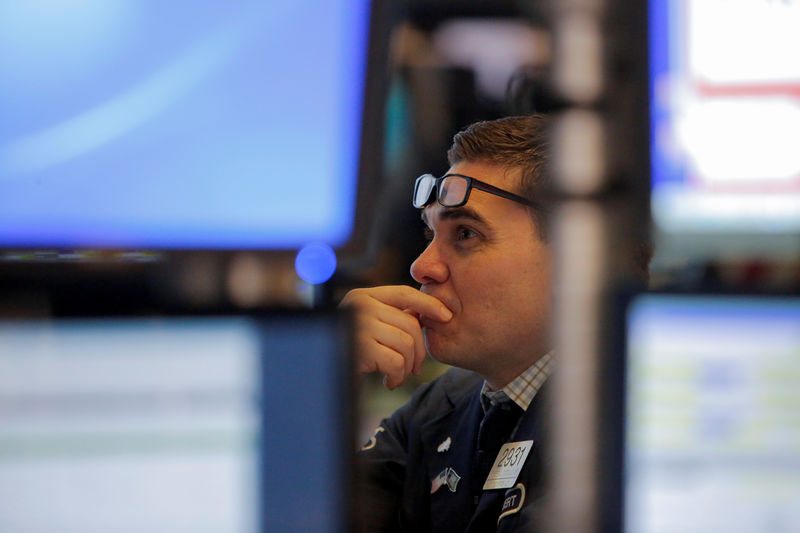By Medha Singh
(Reuters) - U.S. stocks sank more than 1 percent on Thursday as weak industrial earnings raised worries about rising expenses and the impact of tariffs, adding to concerns over higher borrowing costs after hawkish commentary in the Federal Reserve's minutes.
The markets hit session lows after U.S. Treasury Secretary Steven Mnuchin pulled out of a conference in Saudi Arabia, as the Trump administration awaited the outcome of investigations into missing Saudi journalist Jamal Khashoggi. [nL2N1WY0Z8]
Defense contractors such as Lockheed Martin (NYSE:LMT) and Raytheon fell on concerns that U.S. lawmakers will block further arms deals with Saudi Arabia, which is also heavily invested in some U.S. corporations.
"There are concerns around Saudi's funds being in jeopardy," said Randy Frederick, vice president of trading and derivatives for Charles Schwab (NYSE:SCHW) in Austin, Texas. "Until there is no clear resolution to the Saudi issue, investors are bound to take some profits."
Stocks were already under pressure earlier as weak earnings reports from companies such as Cessna business jet maker Textron (NYSE:TXT) and equipment rental company United Rentals did little to soothe worries about the impact of tariffs, rising borrowing costs and wages on corporate profits.
Textron fell 9.4 percent and United Rentals sank 10.8 percent, while Sealed Air (NYSE:SEE) slid 9.2 percent after the packaging company cut its full-year profit outlook due to higher raw material and freight costs.
Profits at S&P 500 companies are expected to have risen 22 percent in the third quarter, slower than the previous two quarters, according to I/B/E/S Refinitiv. Of the 69 firms that have reported so far, 78.3 percent have beaten expectations.
"The market is a little bit on edge as they digest earnings, rising rates and minutes from the Fed meeting. There is some spill over in volatility from last week," said Paul Brigandi, managing director and head of trading at Direxion in New York.
At 13:02 a.m. EDT the Dow Jones Industrial Average was down 280.57 points, or 1.09 percent, at 25,426.11, the S&P 500 was down 31.60 points, or 1.12 percent, at 2,777.61 and the Nasdaq Composite was down 127.39 points, or 1.67 percent, at 7,515.32.
The S&P communication services and tech sectors fell nearly 2 percent, while industrials dropped 1.61 percent.
Only the defensive utilities, consumer staples and real estate gained among the 11 major S&P sectors.
Among the few bright spots was Philip Morris (NYSE:PM), which rose 3.6 percent after the Marlboro cigarette maker topped analysts' estimates for quarterly profit and sales.
Declining issues outnumbered advancers for a 2.75-to-1 ratio on the NYSE and a 2.94-to-1 ratio on the Nasdaq.

The S&P index recorded five new 52-week highs and 25 new lows, while the Nasdaq recorded 12 new highs and 76 new lows.
